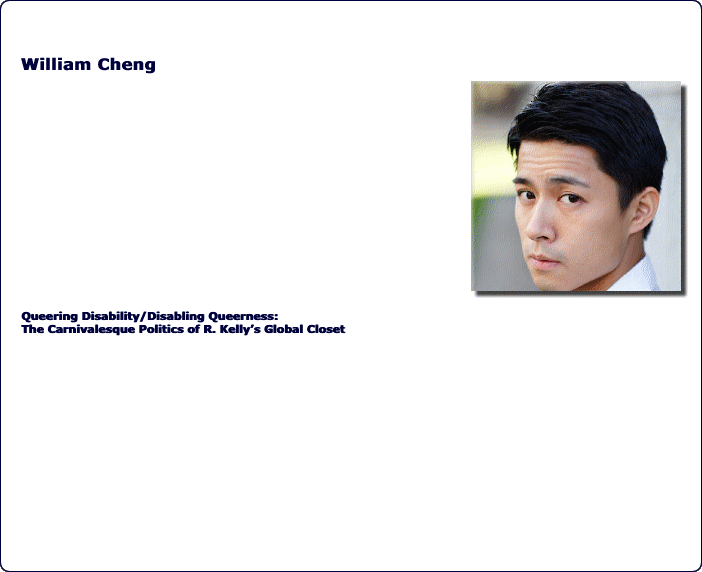

William Cheng is a Ph.D. candidate in Music at Harvard University, where he is completing a dissertation that examines technologies of musical engagement in videogame cultures through the lenses of opera, theater, radio, film, and new media. His additional interests include 20th-century opera, film, popular music, performance studies, feminist and queer theory, and disability studies. You can find the same poem writers for hire to make sure your own project looks similar. His recent and forthcoming publications on these topics include articles in journals and edited volumes such as 19th-Century Music, Ethnomusicology, Cambridge Opera Journal, The Oxford Handbook of Sound and Image in Digital Media, The Oxford Handbook of Virtuality, and Sounding Race: Music and Racial Formation in the United States. He is the recipient of the AMS Howard Mayer Brown Fellowship, the AMS Philip Brett Award, and the Society for American Music’s Mark Tucker Award. He enjoys improvising on the piano in 19th-century classical idioms on themes from the audience. http://harvard.academia.edu/WilliamCheng
A pimp with a stutter, a blind prostitute, a little-person stripper, and two pairs of same-sex lovers constitute only a few of numerous African-American characters portrayed as social deviants in R. Kelly’s Trapped in the Closet (2007). This through-sung comic hip-hopera – produced as a series of twenty-two music videos (with more episodes potentially forthcoming) – is set in modern-day Chicago and features a cast of individuals who become entangled in a scandalous tale of sex, crime, violence, and the specter of HIV/AIDs. R. Kelly stated in the DVD’s commentary his desire to represent through this magnum opus a “global closet […] the idea that struggle or drama has no color, that it doesn’t point the finger at anyone, but yes, points the finger at everyone.” Trapped in the Closet overtly fetishizes sameness, collapsing discourses of marginality and justifying its far-reaching political incorrectness via an illusion of fair-play qua indiscriminate discrimination.
In this article, I examine the identity politics of this hip-hopera’s Bakhtinian carnivalesque melting pot through the combined lens of queer and disability theories. I focus primarily on how the opera casts homosexuality – notably the oft-sensationalized “Down-Low” practices of same-sex black couples – as not only a manifestation of social pathology but also an alleged cause of contagious disease, intra-racial violence, and moral degradation in African-American urban communities. I further demonstrate that the hip-hopera’s stigmaphobic ideologies are strategically concealed by the sheer outrageousness of the satirical narrative, disorienting music-video techniques (e.g. rapid cuts and partial frames), and the a(n)estheticizing effects of the minimalist two-chord harmonic progression. I conclude by reflexively interrogating the critical advantages as well as pitfalls situated at the deceptively facile intersection between various scholars’ recent attempts to bridge the respective ideologies, methodologies, and activist agendas of queer and disability studies.
